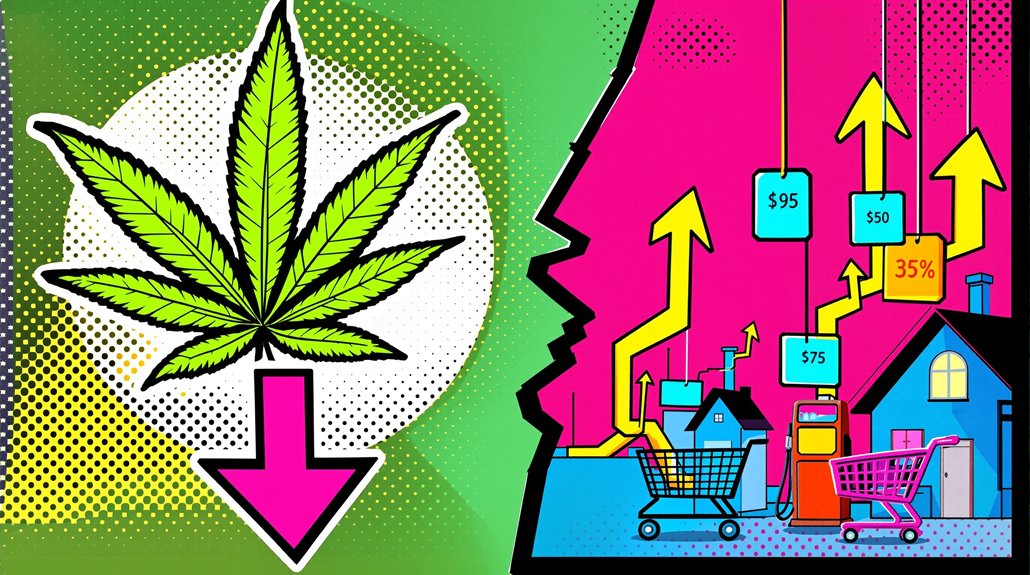Google has officially entered uncharted territory by launching Canada’s first cannabis advertising pilot program on August 25, 2025. The tech giant will allow federally licensed cannabis operators to run targeted search ads for twenty weeks, marking a stark departure from competitors like Meta and TikTok who maintain blanket bans. This calculated experiment operates under Health Canada’s strict regulatory framework, positioning Google as the sole major platform willing to test these digital waters. The implications for Canada’s $4.7 billion cannabis market could prove seismic.
A breakthrough arrived for Canada’s cannabis industry on August 25, 2025, when Google launched its first-ever advertising pilot program allowing federally licensed cannabis operators to promote their products through search ads. This 20-week initiative marks the first time mainstream digital advertising has opened its doors to cannabis businesses in the country, ending years of shadow banning and limited online presence.
The pilot program operates exclusively through Google Search, deliberately excluding YouTube, the Display Network, and Shopping platforms. Only federally licensed operators holding valid production, sale, or distribution licenses under Canada’s Cannabis Act qualify for participation. Medical-only growers and unlicensed operators remain ineligible, maintaining strict regulatory boundaries that reflect Health Canada’s advertising restrictions.
Google’s cautious approach becomes evident in the program’s narrow scope. The company states its purpose as exploring user interest and inform potential future policy updates rather than committing to permanent policy changes. Cannabis ads appear solely in search engine results when users enter relevant keywords, allowing for precise targeting of intent-driven consumers. Users retain control through opt-out features for those preferring to avoid cannabis-related advertisements.
Google’s measured approach prioritizes user control and data collection over permanent policy commitments in cannabis advertising.
The timing couldn’t be more significant for an industry generating billions annually while struggling against advertising headwinds. Meta continues prohibiting cannabis promotion across Facebook and Instagram, while TikTok maintains strict bans. Traditional channels like billboards and radio offer less targeting precision and tracking capabilities, making Google’s search ads particularly valuable for data-driven marketers. Text-based advertisements provide better conversion rates compared to display advertising formats while maintaining compliance with regulatory requirements.
Early industry response suggests a green-rush mentality as brands scramble to secure first-mover advantages. However, questions linger about return on investment and digital advertising literacy among cannabis marketers, many of whom have operated primarily through word-of-mouth and retail partnerships. The learning curve may prove steep for companies suddenly thrust into Google’s complex advertising ecosystem.
Compliance requirements remain stringent throughout the pilot. Participating advertisers face regulatory oversight and audit requirements, while Google maintains its global ban on cannabis advertising outside this Canadian experiment. The tech giant’s previous policies only permitted certain CBD advertisements in select U.S. jurisdictions, making Canada’s all-encompassing approach groundbreaking.
The pilot’s success could influence broader policy shifts across digital advertising platforms. Cannabis businesses have long faced algorithmic biases and unpredictable account takedowns, forcing them into creative workarounds that often violated platform terms. This legitimate pathway offers unprecedented access to targeted advertising tools previously reserved for traditional industries.
Beyond commercial implications, the program raises questions about information access. Health education and advocacy sectors still encounter barriers when delivering cannabis-related content, despite growing public interest in medical applications and harm reduction strategies. Companies previously struggled with shadow banning impacts on major platforms like Facebook and Instagram, limiting their visibility and reach.
Google’s cannabis advertising pilot represents more than a business opportunity – it signals potential normalization of cannabis commerce within mainstream digital ecosystems. Whether this 20-week experiment expands beyond search ads will depend largely on user engagement metrics, regulatory feedback, and the industry’s ability to demonstrate responsible advertising practices during this vital testing period.










